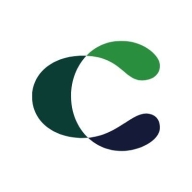

Contrast Security Assess and GitGuardian Platform are competing products in the software development security category. GitGuardian Platform often has the upper hand due to its broad security threat detection capabilities and data leak prevention features, offering a comprehensive feature set considered worth its pricing.
Features: Contrast Security Assess offers real-time vulnerability assessments, seamless integration within the DevOps cycle, and robust real-time exploit detection. GitGuardian Platform excels with its automatic secrets detection, quick alerting mechanism, and broad integration capabilities for various environments.
Room for Improvement: Contrast Security Assess could benefit from expanding its threat detection capabilities beyond real-time vulnerabilities and enhancing user experience in policy configuration. GitGuardian Platform might improve in simplifying initial setup matters, reducing false positives further, and offering more flexible reporting tools.
Ease of Deployment and Customer Service: Contrast Security Assess provides quick integration into existing environments, focusing on simplicity. GitGuardian Platform offers robust customer support and adaptability, although it may be complex initially. The emphasis is on balancing setup intricacies with supportive customer service.
Pricing and ROI: Contrast Security Assess boasts a competitive setup price, giving significant ROI by efficiently reducing vulnerabilities. GitGuardian Platform may involve a higher initial investment but delivers considerable ROI by preventing breaches, justifying its expense through long-term value and risk mitigation strategies.
| Product | Market Share (%) |
|---|---|
| GitGuardian Platform | 1.0% |
| Contrast Security Assess | 1.0% |
| Other | 98.0% |

| Company Size | Count |
|---|---|
| Small Business | 2 |
| Midsize Enterprise | 3 |
| Large Enterprise | 6 |
| Company Size | Count |
|---|---|
| Small Business | 10 |
| Midsize Enterprise | 9 |
| Large Enterprise | 13 |
Contrast Security is the world’s leading provider of security technology that enables software applications to protect themselves against cyberattacks, heralding the new era of self-protecting software. Contrast's patented deep security instrumentation is the breakthrough technology that enables highly accurate assessment and always-on protection of an entire application portfolio, without disruptive scanning or expensive security experts. Only Contrast has sensors that work actively inside applications to uncover vulnerabilities, prevent data breaches, and secure the entire enterprise from development, to operations, to production.
GitGuardian is a comprehensive platform focused on enhancing Non-Human Identity security by integrating Secrets Security and Secrets Observability to detect and manage secrets across development environments.
As cybersecurity threats increasingly target NHIs like service accounts and applications, GitGuardian offers a robust solution by supporting over 450 types of secrets and deploying honeytokens for additional defense. Trusted by leading organizations and developers, its monitoring and quick alert system enable effective detection and management of sensitive data, strengthening operational security across platforms.
What are the key features of GitGuardian?In the tech industry, GitGuardian is employed to safeguard APIs and sensitive credentials across code repositories like GitHub. Companies benefit from instant alerts and integrations with tools like Slack, effectively managing risks and enhancing security policies. While popular in sectors dependent on development agility, there is room for further improvement in customization and integration to meet specific industry needs.
We monitor all Application Security Tools reviews to prevent fraudulent reviews and keep review quality high. We do not post reviews by company employees or direct competitors. We validate each review for authenticity via cross-reference with LinkedIn, and personal follow-up with the reviewer when necessary.